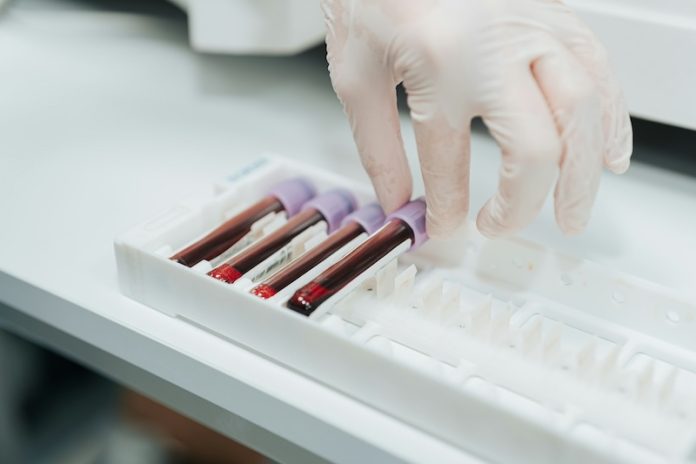
Millions of people with irritable bowel syndrome (IBS) struggle with unpredictable symptoms like abdominal pain, cramps, constipation, and diarrhea. While some find relief by changing their diet, identifying specific food triggers has always been difficult.
Now, a new study by Michigan Medicine and Cleveland Clinic suggests that a blood test may help pinpoint which foods worsen IBS symptoms, allowing for a more targeted approach to managing the condition.
The study, published in Gastroenterology, tested a new IBS-specific blood test (InFoods IBS, Biomerica) that measures levels of Immunoglobulin G (IgG) antibodies in response to certain foods. These antibodies are linked to inflammation, which may play a role in IBS flare-ups.
A New Way to Personalize Diet for IBS
IBS affects 10-15% of adults in the U.S., often leading to a reduced quality of life and lower work productivity. Many patients already suspect that certain foods trigger their symptoms, but until now, there hasn’t been a reliable way to determine which ones.
“We have patients all the time who say, ‘I know food is a problem for me. Is there any way to figure out which foods I’m sensitive to?'” said Dr. Prashant Singh, the study’s lead author and a gastroenterologist at Michigan Medicine.
To test whether the IgG blood test could help, researchers conducted a large clinical trial involving 238 IBS patientsacross eight academic centers in the U.S. The participants were divided into two groups:
- The test-based diet group eliminated foods that their blood test identified as problematic.
- The sham diet group followed a similar but randomized elimination diet, avoiding foods that were not directly flagged by the blood test.
For example, if a participant’s test showed walnuts triggered an antibody response, they were asked to eliminate walnuts. However, in the sham group, a person who ate both walnuts and almonds might be asked to eliminate almonds instead, even though their test didn’t show a reaction to them.
Significant Improvement in Abdominal Pain
The results showed that 59.6% of those on the test-based diet experienced significant relief from abdominal pain, compared to 42.2% in the sham diet group.
The benefits were especially pronounced in patients with:
- IBS with constipation (IBS-C): 67.1% saw improvement (vs. 35.8% in the sham group).
- IBS with mixed symptoms (IBS-M, both diarrhea and constipation): 66% improved (vs. 29.5% in the sham group).
These findings are particularly important for IBS-M patients, as no FDA-approved drugs currently exist to treat this form of IBS.
Why This Study is Different from Previous IgG Tests
Doctors and patients have been skeptical of IgG food sensitivity tests in the past, as many were unscientific and unreliable. However, this new IBS-specific test was developed based on research and validated for IBS patients.
“Some IgG response to food is normal, and past studies didn’t clearly explain how foods were selected,” said Dr. Singh. “This study overcame those issues by designing an IBS-specific test and comparing it to a well-structured sham diet.”
A Simpler Alternative to Other IBS Diets
Many IBS patients try elimination diets, such as the low FODMAP diet, which restricts many hard-to-digest carbohydrates. While effective, low FODMAP can be complex, costly, and hard to follow.
This new IgG-based approach may provide a simpler alternative, requiring patients to eliminate only a few trigger foods instead of overhauling their entire diet.
“Our diets are complex, and identifying triggers can be difficult,” said Dr. Anthony Lembo, vice chair of Research at Cleveland Clinic’s Digestive Disease Institute. “This IBS-specific test can help patients pinpoint specific foods rather than making unnecessary dietary changes.”
What’s Next?
While the study showed promising results, researchers say more validation studies are needed before the test can become a widely used clinical tool.
Dr. William Chey, chief of Gastroenterology & Hepatology at the University of Michigan, believes this test could be a step toward “precision nutrition”—a personalized approach where doctors recommend dietary changes based on a patient’s unique biological responses.
For now, this study provides new hope for IBS patients looking for a more precise way to manage their symptoms and improve their quality of life.
If you care about gut health, please read studies about how junk food harms your gut health, and how probiotics can protect gut health.
For more information about health, please see recent studies about how fiber affects weight loss and your overall health, and results showing why a glass of red wine is good for your gut.
The research findings can be found in Gastroenterology.
Copyright © 2025 Knowridge Science Report. All rights reserved.



